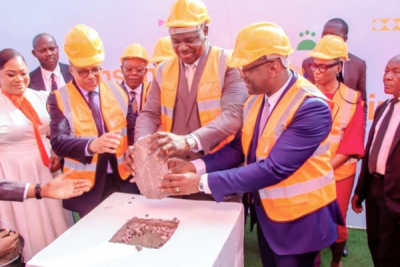In a strategic move to accelerate its digital transformation, the Zambian government has embarked on an ambitious project to provide nationwide access to broadband internet. This initiative aims to empower citizens and unlock significant job creation opportunities through increased participation in the digital economy.
The Zambian government will phase out 2G technology entirely and shift focus towards 4th and 5th generation (4G and 5G) networks, Minister of Technology and Science, Felix Mutati, announced during the inaugural ICT, Post and Courier Awards on December 9th.
“We are eliminating 2G because we want all towers to be internet enabled. Every tower from now on will only be 4G and upwards internet enabled. We must use ICT as an enabler to deliver change to the people of Zambia,” he said.
Indeed, over the past two years, Zambia has stepped up initiatives aimed at creating a favorable environment for improving connectivity in the country. In June, an operating license was granted to Starlink, a subsidiary of the US company SpaceX, to provide satellite Internet services throughout the country, including areas previously considered inaccessible.
Telecom operators such as Airtel and MTN have also launched the commercialization of 5G in the country. Initially, the service was concentrated in specific areas, such as densely populated residential areas, shopping malls, hospitals, city centers, and central business districts.
All these initiatives have improved Internet access in the country. According to the Minister, Internet penetration has risen to 58% this year, compared with around 53% last year. The Post Office's business grew by 70% this year.
By focusing on 4G and 5G, Zambia aims to ensure greater digital access for the population, create jobs, and attract and retain investment in the ICT sector over the next few years.
Samira Njoya



















